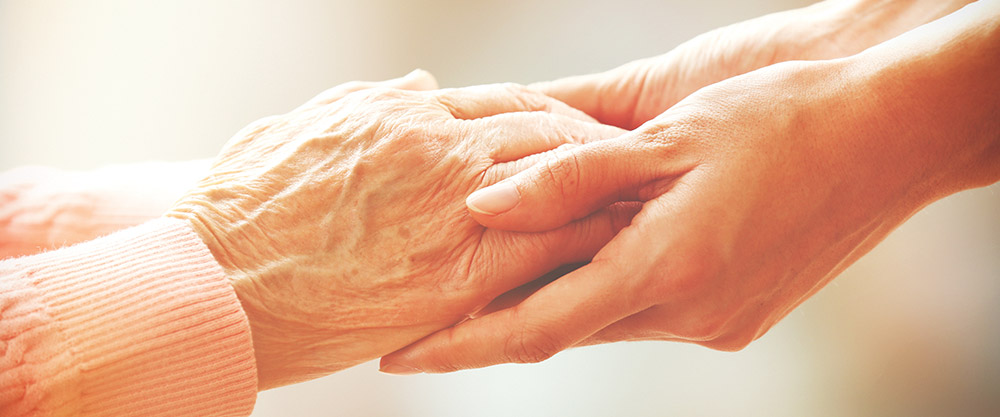What is Home Health Care?
Home health care can be defined as health services that are done at home. This care can be provided by either a licensed health personnel or a non-licensed care giver. The licensed health professional takes care of the medical needs of the patient, while the non-licensed care provider takes care of the daily requirements of the patient such as eating, bathing, dressing and other immediate needs of the patient. The growing occurrences of chronic diseases coupled with the expensive hospital bills have necessitated the need of home health care. This health care system relatively reduces health cost. The same applies to old patients; their family would rather settle for an in-house treatment than to get admitted to the hospital. The ultimate goal of home health care is to ensure the patient recovers from the illness and whatever injuries.

Home Health Care Services Include:
- Nursing services and therapy by professionals
- Drug and injection administration
- Medical and laboratory testing
- Wound care
- Health status monitoring
- Care giver and patient education
- Management of prescription and professional nursing
- Rehabilitative and assistive health care
- Monitoring your feeding habits
- Checking your vital signs
- Psychological and Behavioral counseling
- Telemedicine and vaccination
- How to use medical equipment
Services Rendered by Home Care:
- Ensuring that you are safe, without pain, and taking your drugs as prescribed by the doctor.
- Education about personal hygiene and self-care
- Cleaning of the house and helping the patient takes their bath and get dressed.
- They assist in transportation and payment of bills.
- They ensure that patient takes their prescription at the right time.
- Constant communication with the patients.
Staff Involved in Providing Home Health Care
- Nurses that are registered and licensed
- Physical and occupational therapists
- Pathologists of speech language
- Home health assistance
- Medical social workers
Home health care may include hospice care (for terminally ill patients) or Rehabilitative therapies (for patients recovering from illnesses). It helps those recovering from an extended hospital stay, or surgery to remain safe at home, without bothering about hospitalization.
Is In-Home Health Care a Good Option for Caring for Aging Parents?
Parents find life difficult as they age. They tend to forget to use their medications, feel too tired to get groceries, it becomes hard for them to do their chores without some discomfort, and even difficult to clean up after themselves. They sometimes even forget to pay their house utility bills. The In-Home health care is the answer to these problems, and this makes it a necessity for aging parents. Moreover, geriatrics tend to have chronic diseases, which would require a lot of attention and care from medical professionals and care givers, which is precisely the objective of the In-Home health care. In-home health care provides the following services to aging parents.
• Trained nursing care provided by professionals
• Support for everyday living activities
• House chores
• Home health enhances recovery as hospital environment can be quite depressing for them
• Home health care reduces the hospital expenses
• It dignifies the aging parents since they are already used to living in their own homes, moving out to a nursing home might make them feel less dignified and honored. Staying home besides also makes them feel less tensed
• Home health care also improves the family bond, as it can accommodate the family members that want to visit as compared to a regular hospital environment or a nursing home
• Home health care prevents against nosocomial infections, as diseases can be easily gotten in the hospital
• Home health care is the oldest and most respected form of care
• Home health care and technology go together- appliances can be quickly set up in the house. The advent of telemedicine makes it easy to monitor, diagnose and treat from the patient’s abode
What is Included in Home Health Care Services?
The medical professionals which include the doctors, nurses provide medical care such as diagnosis and other needed medical procedures. On the other hand, the care givers which are the non-medical personnel take care of the daily needs of the patient. This might be bathing, eating, and even walking in cases where the patient is incapacitated. Medicare takes care of such expenses. It comprises of medical or mental assessment, injury care, drug administration, the management of discomfort, disease education and management, physiotherapy, and other types of rehabilitation. The following are some of the things expected from a home health care team:
- Close monitoring of the hemodynamics of the patient. This includes constantly checking the patient’s pulse, blood pressure, heart rate, breathing rate, and body temperature
- Administration of drugs
- Ensuring the comfort of the patient
- Monitoring what the patient is consuming as food and amount
How Can I Be Assured of Quality Care in Home Health Care?
This is a valid concern; however, the care givers are trained individuals. This is also the case with Home aides and certified nurse assistants. Also, the medical personnel which includes the therapists and Registered nurses are all licensed professionals. The utmost quality care should be expected from these health care workers. Also, new care givers can be requested in case the care recipient is not satisfied with the care being given.
What is Independent Home Health Care?
Independent home health care is hired by the patient’s family directly. They are also referred to as private caregivers. People prefer independent home health care because it removes the hassle and extra charges paid to intermediary agencies. A total cost of up to 25-35% is saved when private caregivers are hired directly, and the agencies boycotted. This is because private home health care charges less than home care agencies. Also, independent home health care can also provide medical assistance if trained. However, the downside to independent home health care is that should the care recipient be dissatisfied with the care giver; they would have to go through the stress of searching for another care provider, unlike in home care agencies. Getting a new care provider is as easy as just requesting for a new person. Although it must be known that the care giving depends on the individual providing it, and not in the agency.
Is Full-Time Home Care Assistance Available with Medicare and Medicaid Insurance?
Medicaid is a combined federal and state government package that supports people that get small revenue and has little possessions pay for some or all of their health care bills. It covers medical care, like doctor visits and hospital costs, long-term care services in nursing homes, and long-term care services provided at home, such as services provided by nurses and caregivers. Unlike Medicare, Medicaid does pay for custodial care in nursing homes and at home. Medicare is limited and does not cover full home care assistance
Medicaid Does Not Cover the Following:
- Round the clock home care
- Prescription drugs: To get Medicare drug coverage, you must register in a Medicare Part D plan. You can choose a Medicare private drug stand-alone plan (PDP), or a Medicare Advantage Plan with Part D coverage (MADP).
- Home delivery of food
- Homemaker or custodial care services (i.e., bathing, making meals, doing the laundry, doing home chores)
o Unless custodial care is part of the skilled nursing and skilled therapy services you receive from a home health aide or another personal care attendant.
However, the Medicare hospice benefit may choose to pay for some of these things and amenities for people after their demise.

Concierge care is when a doctor or team of physicians charge you a membership fee before they will attend to you or take you into their practice. However, the advantages of being a member are quite significant. It includes the following
- Covers the cost of necessary procedures
- Round the clock access to your doctor
- Covers visits to the doctor
- Majority of in-house injections and tests
Medicare does not bear the cost of membership for concierge care. Although when you pay this fee, you may get some services or amenities that Medicare doesn’t cover. However, doctors who provide concierge care must still follow all Medicare rules:
- Doctors who accept assignment can’t charge you extra for Medicare-covered services. This means the membership fee can’t include additional charges for items or services that Medicare usually covers unless Medicare won’t pay for the item or service. In this situation, your doctor must give you a written notice called an “Advance Beneficiary Notice of Noncoverage” (ABN) listing the services and reasons why Medicare may not pay.
- Doctors who don’t accept assignment can charge you more than the Medicare-approved amount for Medicare-covered services, but there’s a 15% limit called the “limiting charge.”
- All Medicare doctors (regardless of whether or not they accept assignment) can charge you for items and services that Medicare doesn’t cover
Your costs in Original Medicare
You pay 100% of the membership fee for concierge care
Is Palliative Care the Same Thing as Home Health Care?
Palliative care is a type of care meant for people with severe illness. It basically improves the quality of life which includes physical and mental state of the patient and also the family too. It is not curative; however, it can lengthen the survival time of the patient. Palliative care is not the same as home health care, as it does not focus on curative treatment, unlike home health care that is curative.
Although, some elements of Palliative care are inculcated into home health care, such as assisting the patient with his immediate needs, and doing chores, coupled with administering medications by professionals. Overall, they both provide relief and manage the pain of the patient.
Biotechnology
By Biotechnology on Incline
REFERENCES
Vladeck BC. HCFA presentation. FY 98 Budget proposals. National Association for Home Care April 15, 1997.…
Department of Geriatric Health. Medical management of the home care patient: guidelines for physicians. Chicago: American Medical Association, 1998.
Medicare.gov
“DEFINITION OF CARING FOR ELDERLY”. LiveStrong.com. Retrieved 15 June 2012.
“Caregiver”. The Free Dictionary By Farlex. Retrieved 2012-06-15.
What is home care?”. Retrieved 11 October 2016.
Brailer, T; Thompson, D (2004). “Health IT strategic framework.”. Department of Health and Human Services









